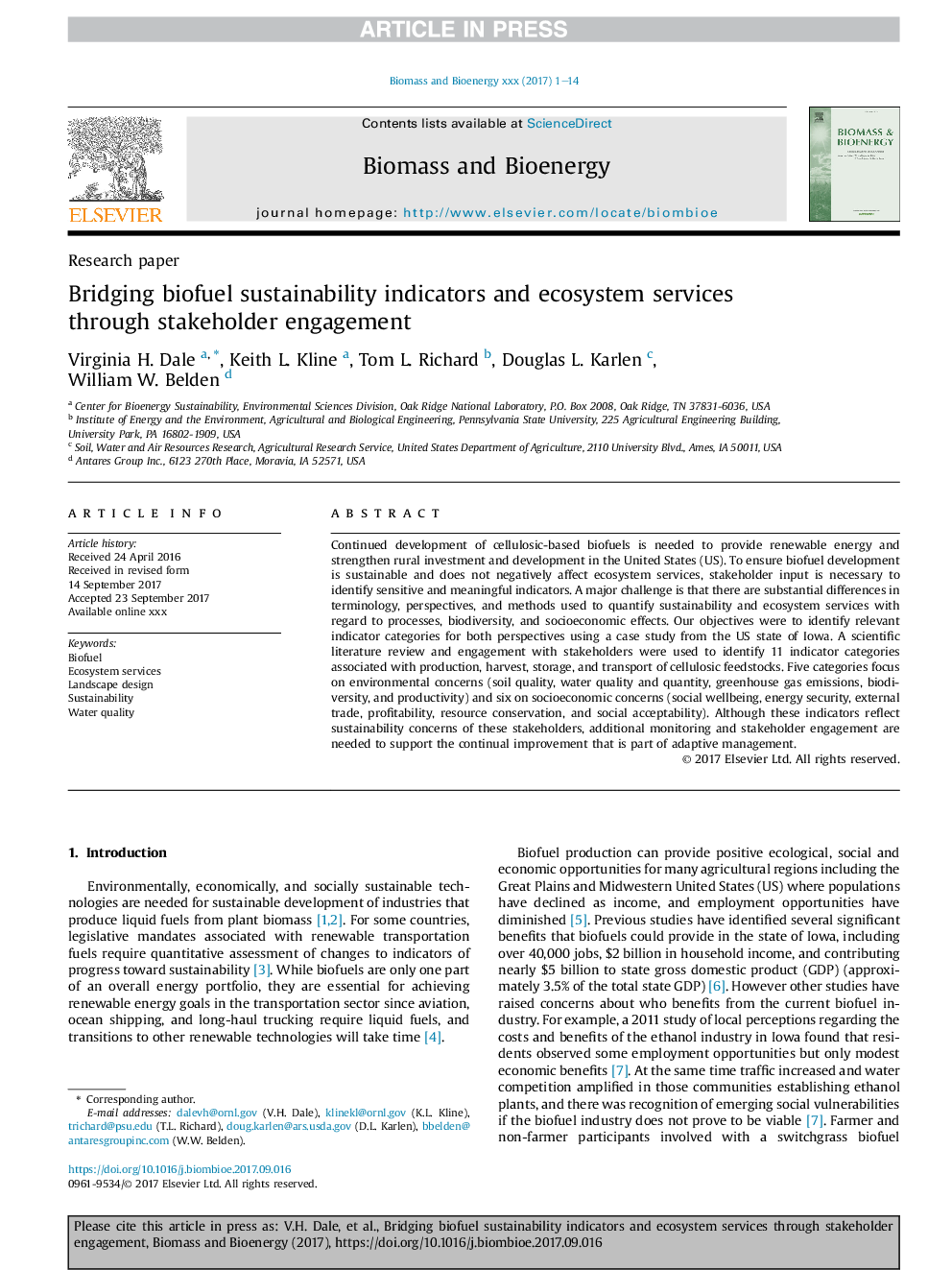ترجمه فارسی عنوان مقاله
برآورد شاخص های پایداری زیستی سوخت و خدمات اکوسیستم از طریق مشارکت ذینفعان
عنوان انگلیسی
Bridging biofuel sustainability indicators and ecosystem services through stakeholder engagement
| کد مقاله | سال انتشار | تعداد صفحات مقاله انگلیسی |
|---|---|---|
| 154689 | 2017 | 14 صفحه PDF |
منبع

Publisher : Elsevier - Science Direct (الزویر - ساینس دایرکت)
Journal : Biomass and Bioenergy, Available online 10 October 2017
ترجمه کلمات کلیدی
سوخت های زیستی، خدمات محیط زیستی، طراحی منظر، پایداری، کیفیت آب،
کلمات کلیدی انگلیسی
Biofuel; Ecosystem services; Landscape design; Sustainability; Water quality;
ترجمه چکیده
توسعه بیولوژیکی های مبتنی بر سلولز برای توسعه انرژی تجدید پذیر و تقویت سرمایه گذاری و توسعه روستایی در ایالات متحده ضرورت دارد. برای اطمینان از توسعه بیولوژیکی سوخت، پایدار است و به خدمات اکوسیستمی تأثیر منفی نداشته، ورودی های ذینفعان برای شناسایی شاخص های حساس و معنی دار ضروری است. یک چالش عمده این است که تفاوت های قابل توجهی در اصطلاحات، دیدگاه ها و روش های مورد استفاده برای تعیین میزان پایداری و خدمات اکوسیستم با توجه به فرآیند، تنوع زیستی و اثرات اجتماعی و اقتصادی وجود دارد. هدف ما شناسایی شاخص های مربوط به هر دو دیدگاه با استفاده از یک مطالعه موردی از ایالت آیووا بود. بررسی 11 ادبیات علمی و تعامل با ذینفعان برای شناسایی 11 دسته شاخص مرتبط با تولید، برداشت، ذخیره سازی و حمل و نقل مواد اولیه سلولز استفاده شد. پنج دسته از مسائل مربوط به محیط زیست (کیفیت خاک، کیفیت آب و مقدار، انتشار گازهای گلخانه ای، تنوع زیستی و بهره وری) و شش مورد بر نگرش های اجتماعی و اقتصادی (رفاه اجتماعی، امنیت انرژی، تجارت خارجی، سودآوری، حفاظت از منابع و پذیرش اجتماعی) تمرکز می کنند. اگر چه این شاخص ها نگرانی های پایداری این سهامداران را نشان می دهد، نظارت اضافی و مشارکت ذینفعان برای حمایت از بهبود مستمر که بخشی از مدیریت تطبیقی است مورد نیاز است.

